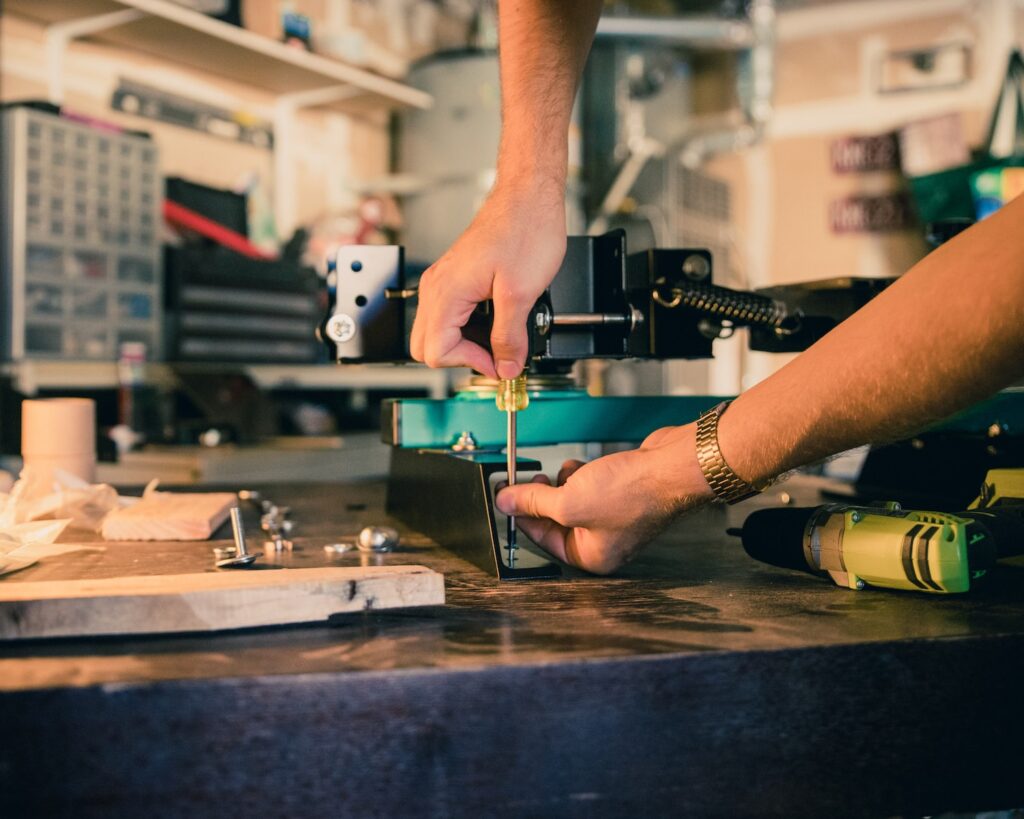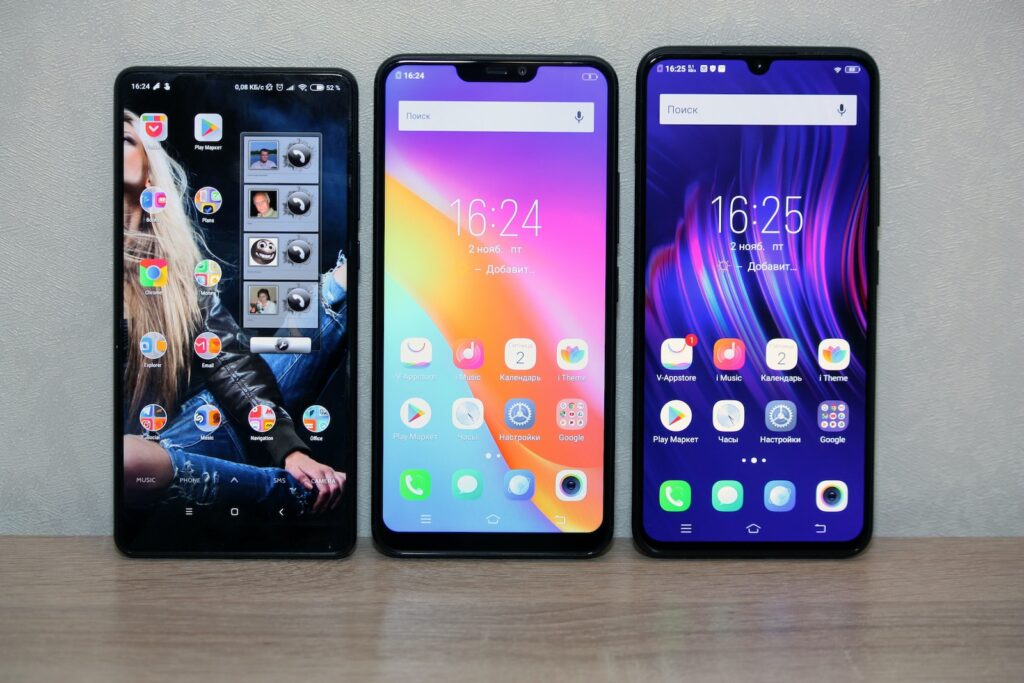Are you a novice smartphone buyer and don’t know where to start? Don’t worry – we have the perfect guide for you! This blog post will provide a comprehensive overview of how to find the best smartphone for you. We’ll discuss the different features and specs to consider, as well as other important factors such as budget, size, and more. By the end of this post, you’ll have all the knowledge and resources you need to make an informed decision about the right phone for you.
Disclaimer: In the name of full transparency, please be aware that this blog post contains affiliate links and any purchases made through such links will result in a small commission for us (at no extra cost for you).
Understanding Your Needs
When it comes to buying a smartphone, understanding your needs is the first and most important step. So, what exactly is a smartphone? Well, it’s not just a device for making phone calls anymore. A smartphone is essentially a mini-computer that fits in your pocket. It allows you to not only make calls, but also send messages, browse the internet, take photos, play games, and so much more.
Before you start searching for the perfect smartphone, it’s important to consider what you will primarily be using it for. Are you a social media addict who needs a phone with a great camera for Instagram-worthy pictures? Or are you more focused on productivity and need a phone with a large screen and long battery life? Maybe you’re on a tight budget and looking for the best budget smartphone or the best smartphone under £200.
Knowing your needs will help you narrow down your options and find a smartphone that ticks all the right boxes for you. So, take a moment to think about what you want your phone to be able to do, and use that as your starting point. From there, we’ll delve into more specific features and considerations to help you find the perfect smartphone for you.
Operating System Comparison
Now that you have a clear understanding of your needs, it’s time to dive into the operating system comparison. When it comes to smartphones, there are three major operating systems to choose from: iOS, Android, and Windows.
iOS, developed by Apple, is exclusive to iPhones. It’s known for its user-friendly interface and seamless integration with other Apple devices. If you’re already using a MacBook or iPad, sticking with iOS might be the best choice for you.
Android, on the other hand, is an open-source operating system that can be found on a wide range of smartphones from various manufacturers. It offers a high level of customisation and flexibility. With Android, you’ll have access to a plethora of apps and features that can cater to your specific needs.
Windows, although less popular than iOS and Android, offers a unique and intuitive user interface. It’s best suited for those who are already familiar with the Windows ecosystem and prefer a seamless integration between their phone and computer.
When choosing an operating system, consider factors such as app availability, compatibility with other devices, and personal preference. Remember, the best budget smartphone or the best smartphone under £200 might have a different operating system compared to high-end flagship phones. It’s important to choose an operating system that aligns with your needs and preferences, as it will ultimately determine your overall smartphone experience.
Our Top Pick: iPhone 15 (iOS)
Screen Size and Resolution
When it comes to choosing a smartphone, one important factor to consider is the screen size and resolution. The screen is essentially the window through which you’ll interact with your phone, so it’s crucial to find the right size and resolution that suits your needs.
The screen size refers to the diagonal measurement of the display, typically expressed in inches. A larger screen size can make reading text, watching videos, and playing games more enjoyable. However, keep in mind that a larger screen also means a larger and potentially less portable phone.
Resolution, on the other hand, refers to the number of pixels that make up the display. The higher the resolution, the sharper and more detailed the images and text will appear on the screen. If you’re into photography or love to watch films on your phone, opting for a higher resolution screen can greatly enhance your viewing experience.
When it comes to budget considerations, you may have to make some compromises. If you’re looking for the best budget smartphone or the best smartphone under £200, you may not have access to the highest screen resolutions or the largest screen sizes. However, with advancements in technology, even budget smartphones today offer decent screen sizes and resolutions.
Ultimately, the right screen size and resolution will depend on your personal preferences and needs. If you enjoy consuming multimedia content, a larger screen and higher resolution may be worth the investment. However, if you prioritise portability and budget, there are plenty of options available with smaller, yet still functional screens.

Camera Quality and Features
When it comes to choosing the perfect smartphone, camera quality and features are often top priorities for many buyers. After all, who doesn’t want to capture stunning photos and videos with their phone?
The camera capabilities of smartphones have improved significantly over the years, to the point where they can rival some dedicated cameras. But what exactly should you be looking for when it comes to camera quality and features?
First and foremost, you’ll want to consider the megapixel count. The higher the number of megapixels, the more detail your photos will have. However, it’s important to note that megapixels aren’t the only factor that determines photo quality. Factors such as sensor size, aperture, and image stabilisation also play a significant role.
Next, consider the additional features that the camera offers. Some smartphones have dual or triple cameras, which allow for different types of shots such as wide-angle or telephoto. Others offer features like optical zoom, night mode, or advanced AI capabilities for enhanced image processing.
If photography is a major priority for you, it may be worth considering a flagship phone that excels in this area. However, if you’re on a tight budget, there are still options available. Some budget smartphones, including the best smartphones under £200, offer surprisingly good camera quality, thanks to advancements in technology.
Ultimately, the camera quality and features you choose will depend on your personal preferences and priorities. Take some time to research and compare different smartphone models, read reviews, and even look at sample photos taken with the devices. This way, you’ll be able to make an informed decision and find a smartphone that captures your special moments with stunning clarity and detail.
Battery Life and Charging
Battery life and charging are two crucial aspects to consider when choosing a smartphone. After all, what good is a phone if it dies on you halfway through the day?
Battery
When it comes to battery life, there are a few factors to consider. The size of the battery itself plays a role, as a larger battery will generally provide longer battery life. However, it’s not just about the size – the phone’s operating system and the efficiency of its components also impact battery life. So, even if two phones have the same battery size, their battery life may differ based on other factors.
To get an idea of a phone’s battery life, look for reviews and user feedback. Many reviewers and users will mention how long the battery typically lasts under normal usage conditions. Keep in mind that battery life can vary depending on your own usage habits, so take these estimates as a rough guideline.
Charging
In terms of charging, you’ll want to consider the charging speed and options available. Fast charging is a convenient feature that allows you to quickly recharge your phone when you’re short on time. Some phones also support wireless charging, which eliminates the need for cables and allows for a more convenient charging experience.
When choosing a smartphone, consider your own usage patterns. If you’re a heavy user who spends a lot of time on your phone, it’s worth investing in a phone with longer battery life. On the other hand, if you’re always on the go and need quick recharges, look for a phone with fast charging capabilities.
Overall, battery life and charging are important factors to consider when choosing a smartphone. Do your research, read reviews, and find a phone that meets your needs in these areas. And remember, even the best budget smartphones under £200 can offer decent battery life and charging options, so you don’t necessarily have to break the bank to find a phone that keeps up with your busy lifestyle.
Storage Capacity and Expandability
Now let’s talk about storage capacity and expandability when it comes to choosing the perfect smartphone for you. We all know how frustrating it can be to run out of storage space on our phones, especially when we have important photos, videos, and documents we want to keep.
When it comes to storage capacity, smartphones generally come with a certain amount of built-in storage. This storage is where all your apps, photos, videos, and files will be stored. It’s important to choose a phone with enough storage to meet your needs. If you’re someone who takes a lot of photos and videos or downloads a lot of apps and games, you’ll want a phone with a larger storage capacity. On the other hand, if you primarily use your phone for calling and messaging and don’t store many files, a phone with a smaller storage capacity may be sufficient for you.
If you find yourself running out of storage space frequently or anticipate needing more storage in the future, you’ll want to consider a phone with expandable storage. Expandable storage allows you to insert a microSD card into your phone, which gives you additional space to store your files. This is especially useful for those who like to keep a lot of music, videos, or other large files on their phones.
However, it’s important to note that not all smartphones have expandable storage. This is a feature that is more commonly found in budget or mid-range smartphones. High-end flagship phones, like the latest iPhones or Samsung Galaxy devices, often do not have expandable storage. So if expandable storage is a must-have for you, be sure to check the specifications of the phone you’re interested in before making a purchase.

Design and Build Quality
Now let’s move on to an important aspect of choosing the perfect smartphone – the design and build quality. When you hold your phone every day, you want it to feel good in your hands and have a design that appeals to your personal taste.
The design of a smartphone can vary greatly depending on the brand and model. Some phones have a sleek and minimalist look with a glass or metal back, whilst others have a more bold and vibrant design with unique colours and patterns. It’s all about finding a design that resonates with you and makes you excited to show off your new phone to your friends.
In addition to the aesthetics, it’s important to consider the build quality of the phone. You want a phone that feels solid and well-made, with durable materials that can withstand everyday wear and tear. Look for phones with a good reputation for build quality, as this can greatly impact the longevity and reliability of your device.
Remember, even budget smartphones can have stylish designs and decent build quality. So, if you’re on a budget and looking for the best smartphone under £200, don’t assume that you have to sacrifice on aesthetics or durability.
Budget Considerations
When it comes to buying a smartphone, one of the most important factors to consider is your budget. Smartphones can vary greatly in price, with high-end flagship models costing several hundred pounds, while budget options can be found for under £200.
So, what should you consider when it comes to budget considerations? Firstly, it’s important to determine how much you’re willing to spend on a smartphone. Set a realistic budget that aligns with your financial situation and needs.
Next, consider what features and specifications are most important to you. If you’re willing to sacrifice on certain features, you may be able to find a more affordable option that still meets your needs. For example, if you’re primarily using your phone for calls and messaging, you may not need the latest and most powerful processor or a high-resolution screen.
Another factor to consider is the brand and model of the smartphone. Different brands have different pricing strategies, and some may offer more budget-friendly options than others. It’s worth doing some research and comparing prices from different manufacturers to find the best deal.
Lastly, don’t forget to consider the long-term costs of owning a smartphone. This includes the cost of a monthly phone contract or a SIM-only plan, as well as any additional accessories you may need, such as a phone case or screen protector.
By carefully considering your budget and prioritising your needs, you can find a smartphone that offers great value for money and meets your requirements. Whether you’re looking for the best smartphone under £200 or are willing to invest in a higher-end model, there are options available for every budget.



